Enhance Your Landscape with Expert Drainage Design
Effective landscaping drainage services encompass various solutions designed to manage excess water and prevent pooling or flooding. These include surface drainage options like swales and French drains, as well as subsurface systems such as pipe drainage and catch basins. Each type of drainage system is selected based on the specific landscape conditions and water management needs of a property. Proper installation ensures water is directed away from foundations, walkways, and garden beds, reducing erosion and water damage. Landscape drainage services can also involve grading to improve runoff flow and installing drainage outlets for efficient water dispersal. These services aim to maintain landscape integrity and prevent water-related issues that can compromise the health of plants and structures.
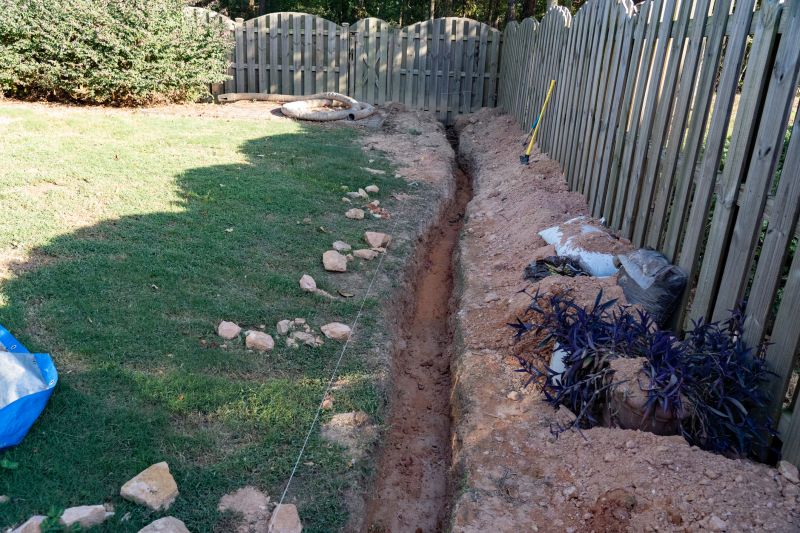
A French drain system channels excess water away from the landscape, preventing pooling and erosion.

Surface drainage methods like swales help manage runoff and protect landscape features.
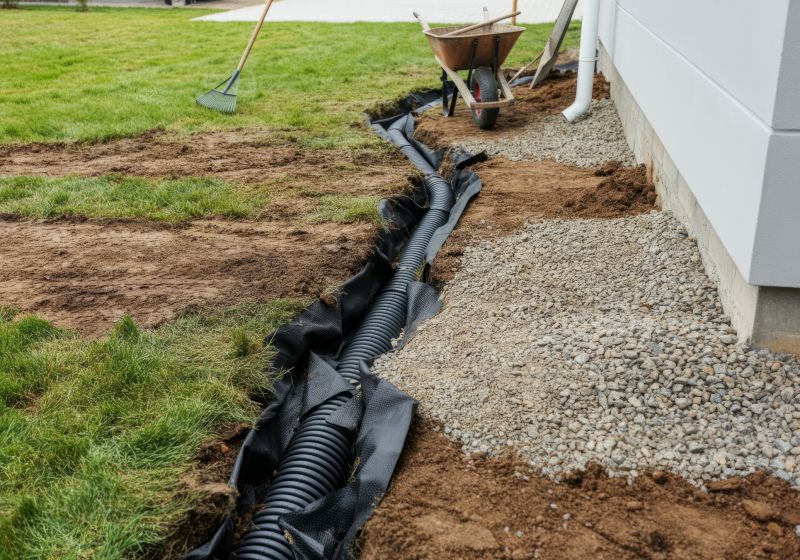
Subsurface piping directs water underground, ensuring proper dispersal and landscape stability.
| Benefit | Description |
|---|---|
| Prevents Water Damage | Proper drainage reduces the risk of foundation issues and landscape erosion. |
| Enhances Landscape Health | Effective water management promotes healthier plant growth and soil stability. |
| Reduces Flooding Risk | Drainage systems help manage heavy rainfall and prevent surface flooding. |
| Increases Property Value | Well-drained landscapes are more attractive and can boost property appeal. |
| Minimizes Erosion | Proper drainage controls soil displacement and maintains landscape integrity. |

Installation of a drainage system to manage water flow effectively.

Grading to ensure proper runoff and prevent water pooling.
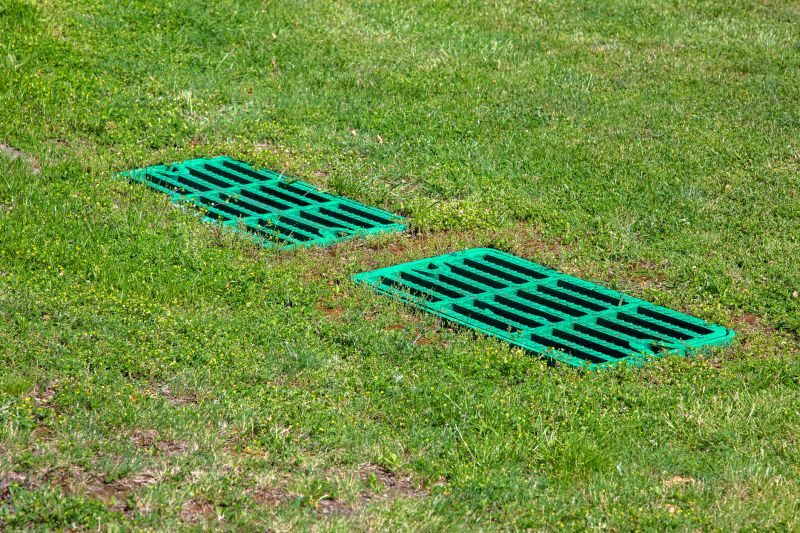
Catch basins collect surface water and direct it to drainage pipes.
The process of installing landscape drainage involves assessing the site to identify water flow patterns and problem areas. This is followed by designing a suitable drainage plan that may include grading, trenching, and installing drainage components such as pipes, catch basins, or French drains. Excavation is performed to create channels or trenches, which are then fitted with drainage materials and covered with soil or gravel. The system is tested to ensure proper water flow and effectiveness. Final adjustments are made to optimize drainage performance and landscape appearance. Proper planning and execution are essential for long-lasting results and landscape protection.

Excavation and placement of drainage pipes for effective water management.

Adjusting land contours to facilitate proper runoff.

Ensuring the drainage system functions as intended.
Hiring a professional for landscape drainage installation ensures that the system is correctly designed and implemented to meet specific site conditions. Experienced installers understand the importance of proper grading, appropriate material selection, and seamless integration with existing landscape features. Professionals can identify potential issues early and offer solutions that improve system longevity and performance. Proper installation reduces the likelihood of future problems such as clogs, leaks, or inadequate drainage. Additionally, experts can advise on maintenance practices to keep the drainage system functioning optimally over time. Engaging a professional helps ensure the landscape remains healthy and protected from water-related damage.
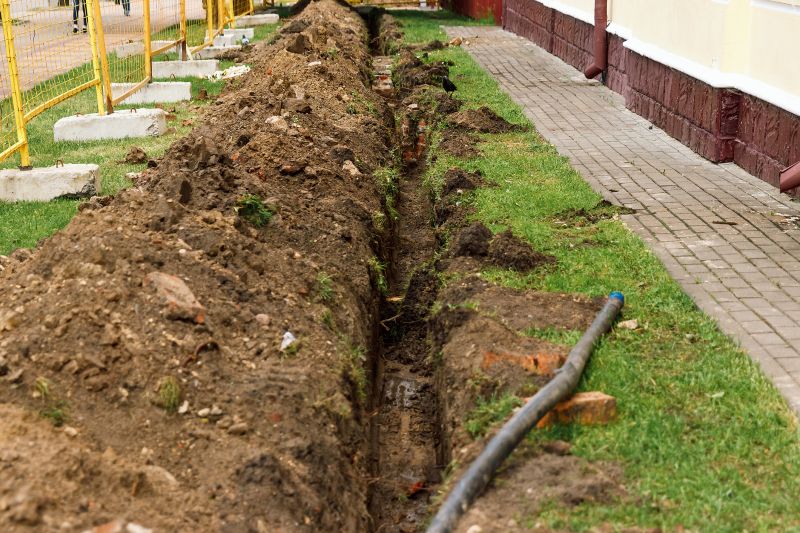
Expert installation of drainage components tailored to site needs.
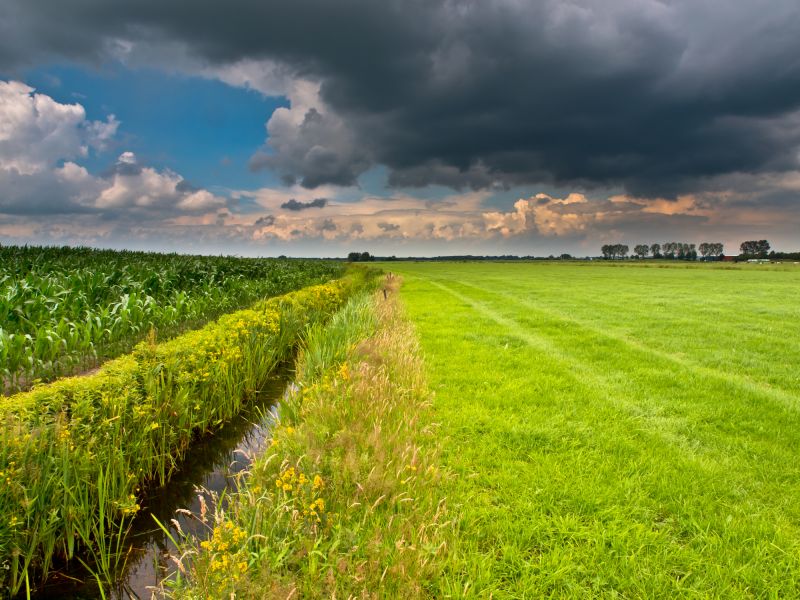
Detailed assessment to determine the best drainage solutions.
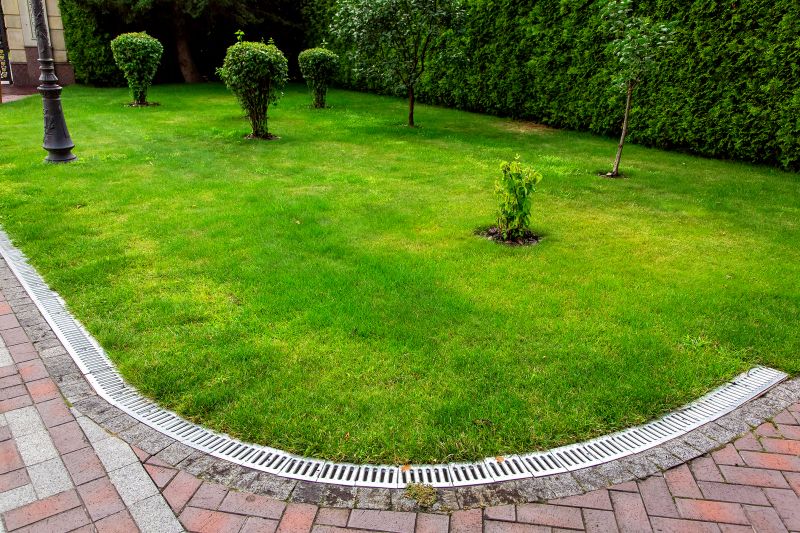
Drainage systems integrated with landscape features for durability.
Effective landscape drainage is essential for maintaining the integrity and beauty of outdoor spaces. Properly installed systems prevent water accumulation that can lead to erosion, foundation issues, and plant damage. Professional installers bring expertise in site assessment, system design, and installation techniques that ensure long-term performance. They also understand local regulations and best practices, reducing the risk of future complications. Investing in professional services can save time, effort, and costs associated with repairs or system failures. A well-executed drainage system contributes to a healthier, more stable landscape that withstands weather challenges.


